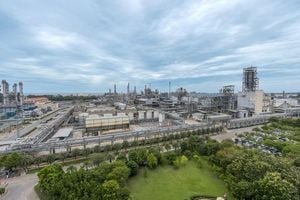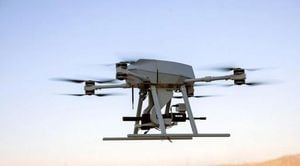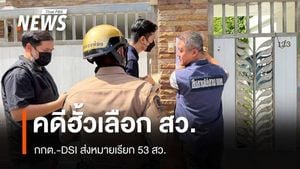The investigation into the management of the DANA (a weather phenomenon causing heavy rainfall and flooding) that severely impacted the Valencian Community is gaining momentum. The Court of First Instance and Instruction number 3 of Catarroja, led by Judge Nuria Ruiz Tobarra, has summoned the mayor of Valencia, María José Catalá, along with 15 other mayors from municipalities affected by the disaster to testify as witnesses.
Among those called to the stand are the mayors of Torrent, Cullera, Guadassuar, and several others from the Valencia metropolitan area, including representatives from Cheste, l'Alcúdia, Riba-roja del Túria, and more. This list also includes former mayors Rocío Cortés of Requena and Amparo Fort of Chiva. The summons aims to clarify the actions taken by these city councils and their coordination with regional and state administrations during the emergency.
These testimonies are crucial as they seek to shed light on the management of the crisis that unfolded on October 29, 2024, when the DANA caused catastrophic flooding, leading to the tragic loss of 228 lives. The judicial process is not just about accountability; it’s also about understanding how such a disaster could have been better managed.
In a related development, the judge will also decide separately whether to summon journalist Maribel Vilaplana as a witness. Vilaplana had lunch with the president of the Generalitat, Carlos Mazón, on the day of the flooding, which has raised questions about the government's response.
However, there are indications that the request to summon Vilaplana may be rejected due to the president's status, which limits the scope of the investigation concerning his official activities on that day. Judge Ruiz Tobarra has expressed skepticism about claims made by certain officials, particularly those from the Generalitat, regarding their lack of access to critical information during the emergency.
The judge has been particularly critical of the explanations provided by former councilor Salomé Pradas and her deputy, Emilio Argüeso. Ruiz Tobarra described their claims of being isolated and without information as “absurd,” pointing out that they had ample means of communication available to them.
On the other hand, the judge has dismissed calls to investigate Miguel Polo, the president of the Júcar Hydrographic Confederation (CHJ), and several senior officials from the Generalitat's emergency services. Ruiz Tobarra concluded that there was no evidence of criminal responsibility on their part, citing timely alerts and data provided by the SAIH (Automatic Hydrological Information System) as sufficient.
As the investigation unfolds, the focus remains on the alleged negligence of various officials in managing the crisis. The judge has noted that the decision to issue alerts to the public could only have been made with Pradas's approval, suggesting a significant lapse in responsibility.
Further complicating matters, some parties involved in the case have pushed for a broader investigation that would include other administrative bodies, such as the CHJ. However, the judge has maintained her stance, emphasizing that the responsibility for the tragic outcomes lies primarily with the local and regional administrations.
The situation continues to evolve as more details emerge and testimonies are collected. The court's decisions will likely shape the future of emergency management protocols and accountability in the Valencian Community.
As the investigation progresses, it is essential for the affected communities to understand what went wrong and how similar tragedies can be prevented in the future. The testimonies of the mayors and other officials will play a pivotal role in this process, offering insights into the decision-making that occurred during a time of crisis.
The upcoming hearings are expected to be highly scrutinized, with many looking to see how local leaders respond to the judge's inquiries and what implications their testimonies may have for future governance.
In summary, the DANA investigation is not just about assigning blame; it represents a critical moment for the Valencian Community to reassess its emergency response strategies and ensure that such a devastating event does not happen again. The testimonies of those involved will be crucial in shaping the narrative of accountability and responsibility in the wake of this disaster.






